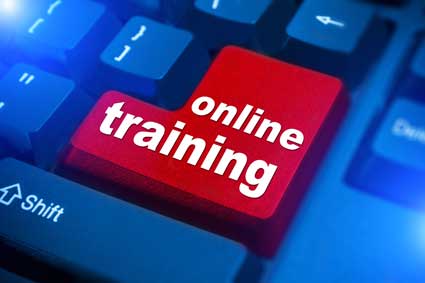Becoming a business coach can be an incredibly rewarding profession. It allows you to become a teacher and give back to a community that can greatly benefit from your knowledge. However, in order for you to be an effective business coach and be successful in your career, you need to have an understanding about what business coaching actually involves.
This article will serve as an introduction to the business coaching career. It will outline information on the standard business coaching process, what business coaching is, and who uses it.
What Is Business Coaching?
Business coaching is a term applied to the process of assisting others in the development, growth, and progression of their business. It may also be referred to as business consulting, as coaches may occasionally be employed in that capacity by a client. As a business coach, it is your responsibility to take your knowledge of the business world and all of its aspects to guide someone and their business towards improvement. Think of coaches you might have had if you were on a sports team. They worked to help you improve your skills and get better at what it is you do. Business coaching is the same, just with a different setting.
There may be some misunderstanding as to what is involved with business coaching. To coach does not mean that you are a mentor or a trainer. As a coach, it is your job to listen, ask questions, empower your client, and push your client towards achieving their goals. Your goal is to get them from point A to point B as efficiently as possible. How you do so is entirely up to you and your client, and the methods you use will largely be based on your abilities and their needs. Keep in mind, though, that each client will be different and you may find that what works with one will not work with another. The skills and abilities you bring with you in to your business coaching career will determine how well you can adapt to your client's needs and objectives.
Business coaching can be applied on multiple levels. The niches that business coaches specialize in or cater to is, like the methods you choose in your coaching sessions, decided upon by you. As you formulate your own business coaching career, you will need to spend time looking at yourself and your skill set. Business coaching, while you may be seen as a teacher to some, does not mean that you will be seen as an expert and will know everything. Things change with time and new things spring up in the world of business, so being a business coach will often require you to keep learning. Effective communication, listening, and problem solving skills are also necessary for your business coaching career.
- Preparation-Your first step will mostly involve planning for the rest of the process and gathering information. The data you collect during this time will help you tailor your coaching for the client. You should take extra care in conducting your research, as any and all information you find can be useful.
- The Contract-This stage is for you and the client to finalize the details of your service and make any final preparations before starting any coaching sessions. You will present your plan to your client and make any necessary adjustments. Basically, you will use this stage to hammer out the finer details of the arrangement face-to-face with your client.
- Start-up Session-Conducting a start-up session will-and should be-the longest stage of the process. During this time, you will assess your client at their current point. This session will establish the style and tone for future sessions. It will also be used to ensure that everyone involved in the coaching-you, the client, their employees, etc.-are all on the same page in terms of the sessions' goals and objectives.
- Regular Sessions-Your regular sessions will be the next stage of the process. What they will include and how many there will be is determined earlier on. However, your sessions should not simply be copies of one another, but each should instead be unique enough to keep your client's attention and interest. You can also decide to include assignments for the client to complete and offer a preview of upcoming sessions.
- Final Session/Wrap-Up-At the end of the business coaching process you should have a final session to wrap-up the entire process. It should be used to tie up any loose ends from other sessions and from the coaching as a whole. You can also use this stage as a final assessment for your client's progress and offer recommendations for what they can do after the arrangement is completed.
- Corporations-Big corporations will seek out business coaches for specific divisions of their business. Certain departments that seem to need some help may benefit from a business coach who has knowledge and expertise relevant to those employees. They may also employ business coaches for one of their retail locations in an effort to create improvements at that store.
Some of the large corporations, should they approve of your efforts, may be repeat customers for business coaches. They may also employ multiple business coaches at once, especially if they are using those services for different niches and areas. It is possible that a corporation may keep a business coach on retainer or hire them as an employee of their company so as to have access to those services when they are needed.
While having a corporation as a client for your business coaching is quite an accomplishment, do not expect them to be readily available as a part of your audience. Many business coaches who have corporate clients typically have a larger operation, more skill, and have had the career for quite some time. This does not mean that you will never be able to coach for a corporate client, but it may take you some time before it happens.
- Small Businesses-A small business may seek out a business coach if they feel like they are struggling. There could be signs that something a business is doing is causing harm to itself, but there may not be any clear evidence as to what the cause actually is or how to fix it. Small businesses that hire business coaches usually chose someone local, and who has experience coaching small and independent businesses. They may also look for someone who is familiar with their industry in order to ensure that they help they receive from a business coach is as relevant to them as possible.
Small businesses may not seek out a business coach as soon as other businesses would. There is the issue of expense and time that the owners and operators of a small business may not want to waste on involving someone from the outside. It is possible that a small business will probably not seek out the services of a business coach again, but they may refer a coach to others.
- Business Owners-Business owners who seek out coaches are often doing so with the intent of becoming better leaders. This could mean that they want to improve themselves within their own business, their individual market, or their industry as a whole. In some cases, a business owner may seek out a business coach when they are first creating their business and want to give themselves as much of an added boost as possible.
Like corporations, business owners may be repeat clients. If a business owner is satisfied with and greatly benefits from the help of a business coach, they may call upon them again for their own employees or as their business grows. There is also the added possibility that business owners may share your information with each other, such as at trade shows and conferences, and thereby help expand your customer base.
- Individual Clients-The majority of the cases where an individual client has hired a business coach is for the sake of their own career. It is often independent of that client's place of employment or industry, and often because they want to better themselves professionally. These clients will often have a specific goal that they want to accomplish with the assistance of a coach. These goals may be things such as a promotion at their current company or qualifying for their dream job. As a result, they may seek out business coaches who have knowledge and skills related to those goals and their profession.
Some individual clients may already be in a position of leadership and want to sharpen their skills. CEOs, Executives, and other such positions may seek a business coach as their responsibilities grow. They may also want to employ the services of a coach in an effort to stay ahead of their competitors. As time passes, they may also choose to work with a business coach so they can keep their own skills and abilities in top shape.
-
The Demand and Driving Forces of Business Coaching
With any profession and industry, there are certain aspects that can affect the success of those in that field. These driving forces are responsible for whether or not a business will thrive and can greatly affect a person's career. The demand for the services of an industry or career can also have an impact and the two can affect one another as well.
For business coaches, it is necessary to have an understanding of the demands and driving forces behind business coaching. Any ignorance or misinterpretation of this information can be disastrous for you and your services. Those who have not heeded the driving forces of business coaching often find themselves failing. Likewise, those who underestimate the level of demand that there is for business coaching tend to fail as well, usually because they were over- or under-whelmed by the demand of their respective markets.
As you begin to develop your business coaching career, you will need to develop your own understanding of the service's demands and driving forces. Staying up-to-date on this information before you start your career and as it grows will impact your success amongst your peers. For your benefit, this article will cover the aspects such as the demand for business coaching, the forces behind the service, the impact it can have on your business, and how you can use this information to your advantage.
What Demand is There?
Like with most industries, success can be dependent on the demand for a product or service offered. For business coaching, the demand from customers is the primary contributor to the industry's success, with the bulk of the demand coming from corporations. As of late the demand has been steady enough for the industry to be quite successful, with the revenue of the business coaching industry falling somewhere around $12 billion globally by some accounts. 1 This is a noticeable growth, as the economic decline cause the demand for business coaching services to decrease until recently.
The success rate of other industries and the economy as a whole tends to be a positive sign for business coaching demand. When the economy declines-even slightly-many businesses begin to make cuts on anything that is nonessential. For larger corporations, this often means any business coaching programs that they have for their employees. As the economy improves, the demand increases once again as customers are now able to afford business coaching. In some cases, they need to bring in a business coach to help reenergize their business or staff after a decline.
As of late, the professional business coaching industry has been steadily increasing in size and revenue due to the increase in demand. Businesses of all sizes and industries are seeking out business coaches to help with their own growth. The increase in demand over the last decade has led to the increase in the amount of business coaches and business coaching services available to the public. Despite the economic decline in 2008, the demand has allowed the industry's success to increase at a steady pace.
The Driving Forces for Business Coaching
Understanding the driving forces behind the business coaching are as equally important as understanding the demand. These driving forces are often the contributing factors for the industry's growth and success. What is listed below will not be the only driving forces for the business coaching industry, but they are typically the largest ones that you may be affected by in your coaching career.
- Acceptability-The growth of the business coaching industry in the last decade has shown that there is less of stigma surrounding business professionals who use coaches. 2 For many years, using a business coach was equal to telling your peers and competitors that you have a problem. Most customers would do their best to keep their use of a business coach a secret for fear that the information would do more harm than the service would do good.
This recent destigmatization of business coaching does not stop with the business world. While the industry at large is not federally regulated, it is increasingly becoming a more accepted and recognized profession. Independent organizations, like the International Coach Federation, are being viewed with more respect. The ICF by itself claims responsibility for pushing professional business coaching into the public eye and making it more acceptable. 3
- The Economy-As stated earlier in the article, the state of the economy has a massive impact on the business coaching industry. During times of economic turmoil when there's a recession or a low demand for products and services, businesses are more focused on keeping themselves afloat and may be less inclined to try any outside assistance. Businesses avoid spending money on anything that is not essential to their operations during times of economic decline. It's a poor business move, reminiscent of the old adage "counting your chickens before they've hatched." Even if they can afford hiring a business coach, there's no guarantee in a poor economic state that the client will be able to apply their coach's teachings to their business if their own demand is diminished.
When the economy begins to shift towards a more positive state, businesses that use the services of coaches are going to be more likely to seek them out. They've survived the decline and, now that things are improving, are able to resume spending for nonessentials. A coach may be seen as a tool to help them get back in fighting shape and allow them to be better prepared in the event of another decline. The better the economy is, the more likely a business will be able to justify the expense of using a business coach.
- Beneficial Outcomes-The reputation of business coaching services is typically a major driving force for the industry. Clients will seek out business coaches who have proven that they can create positive results. If a business coach has clients who, after employing their services, see little improvement in themselves and their business practices, then it's not likely that that coach will do well for themselves.
One of the beneficial outcomes that clients typically hope to have with business coaching is an increase in income and profit. A common goal for business coaching clients involves advancing up the professional ladder through promotions, job offers, and salary increases. It goes without saying, but money is a powerful motivator. The more money that business coaches make for their clients, the more money, and business that the coaches themselves will have.
- Knowledge-The business coaching industry would not be where it is today were it not for the wealth of knowledge that its coaches have. Some professions and industries allow you to start by simply going through rudimentary training, but will not require a lot of pre-existing knowledge when you begin. These careers allow for a lot of on-the-job learning, and they work quite well with that arrangement. However, business coaches need to have some level of knowledge about business when they first get started. Their ability to perform in their field is dependent on the knowledge they have in their possession.
The effectiveness of your coaching may depend heavily on your continued education. Supplementing your knowledge throughout your career can allow you to improve your own skills and put forth your best effort for your clients. Changes in industry and the arrival of new trends are things that you will need to be stay up to date on. If your knowledge is out of date, clients will not want to work with you. The more applicable knowledge that coaches have to share with customers, the more likely the industry will thrive
- Personal Forces-Many business coaches find that, in addition to the aforementioned forces, they have personal forces that drive their business coaching. These forces are different for each coach and what is a main force for one coach could be insignificant for another. However, that does not mean that any personal driving forces you may have as a business coach should be discounted as something of lesser value.
Coaches with personal driving forces find that they play a larger role than the driving forces of the industry. As you begin your business coaching career, you may want to look at what driving forces you may personally have for your career. Understanding your personal driving forces are just as important as understanding the driving forces behind the business coaching industry, although there is the possibility that doing so may take some time.
Impact on Your Business
As you develop your understanding of the demand and driving forces behind business coaching services, you also will need to develop an understanding of how that information can affect your business. The following are just some of the few aspects of your business coaching career that can be impacted by the demand and driving forces of the industry. Keep in mind that the impact will not be limited to those aspects discussed below, as every business coach may find their particular situation different from that of their peers.
- Your Business Structure-Your coaching career is your business and how you have it structured is going to be affected by industry demand and forces. The way you operate, interact with your clients and peers, what you offer and how you offer it are all parts of your business structure. The way those aspects form and are used will be affected by things like demand and driving forces.
- Your Audience-The driving forces behind the business coaching industry are going to have a major impact on who your audience is. The demand for coaching services is going to come from a certain demographic, thus your audience is going to be limited to those who actually need your product. 4 Changes in demand or driving forces will create changes in your audience that you will need to take notice of. These changes may come in the form of new demographics, a shift in audience size, and what those in your audience want from you and your services. Even how you communicate with your audience-outside of marketing as listed below-once they have become your clients may be affected as well.
- Your Marketing-Just as your audience will be impacted, the way you reach them will be impacted as well by demand and driving forces. Your approach in marketing is going to be dictated by the demographics and wants of your audience. It is possible that the business coaching industry's driving forces and demands may have a different impact on your marketing tactics than they do on your audience. However, the way each is impacted will often change how the two aspects interact with one another. Thus, paying attention to the driving forces of the industry and the demand for business coaching separately and together may necessary.
- Your Use of Technology-While you may not use technology during your coaching sessions, you will most likely use it in other aspects of your business coaching career. The way you use it can also be impacted by industry forces and demands. Technology can be used in your business coaching service through marketing, finances, planning, customer interactions, and the organization of your business. Any one of those aspects can be affected by the demands and driving forces of the business coaching industry. By extension, the way you use technology with those aspects will be affected as well.
- Your Coaching Ability-More than anything else, the biggest aspect of your business coaching career that will be impacted by demand and driving forces is your coaching ability. It's the way you do your job and it determines your chances of succeeding in the industry. Breaking it down further, your style of coaching-specifically how you conduct your coaching-can be significantly impacted. If the way you coach does not adequately respond to the demand for the service, then it is not likely that your career will progress very far.
























